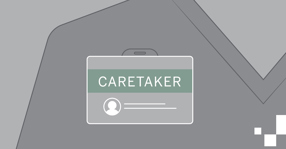We’re pleased to provide you with insights like these from Boston Private. Boston Private is now an SVB company. Together we’re well positioned to offer you the service, understanding, guidance and solutions to help you discover opportunities and build wealth – now and in the future.
Here are some of the key estate planning items you should consider in the first year after a loss.
The first year after losing a significant other can be overwhelming for a myriad of reasons. Not only is losing a loved one emotionally challenging, but it often comes with a lot of change and a long list of action items.
During this time, it's important to consider having a team of professionals on your side — such as an attorney, a certified public accountant and a financial advisor — who can help to guide you through all the legal and financial paperwork. You may be tempted to do a lot yourself, but hiring trusted experts can save you a lot of time, prevent potential mistakes and let you focus on healing. Here are some of the key estate planning to-do's to consider in the first year.
Probate Administration
Unless the estate plan has been crafted to avoid probate, you'll need to go through probate, the court-supervised process of authenticating the will, determining the value of the assets, paying final bills and finally distributing the remainder of the estate to beneficiaries. The probate process can take months or even years, especially if heirs or creditors challenge the process. You may need an attorney to help you through estate administration and probate process.
Collect Life Insurance
If your partner had life insurance, contact the insurance company to determine who the primary and contingent beneficiaries are. The proceeds will not need to go through the probate process if a beneficiary designation was completed (as long as the estate is not named as the beneficiary). While most people jump right to completing the appropriate claims paperwork to collect the proceeds it's advisable to schedule a meeting with a financial advisor to discuss how this influx of cash fits into your budget and long-term financial plan. A financial advisor is another important member of your team of advisors who can help to assess your new financial situation and provide a personalized plan.
Check For Social Security Benefits
Another source of potential income is social security survivor benefits. Survivor benefits are paid to widows, widowers, and dependents of eligible workers. The Social Security Administration will make a one-time payment of $255 to a surviving spouse or dependents if certain criteria are met. Widows and widowers over 60 (or 50 if disabled) may be eligible for survivor benefits from Social Security. You may also qualify if you're younger than 60 and have dependents under 16years old or disabled living at home. Certain other family members – such as a child younger than 18, a child with a disability, parents who depended upon the deceased for financial support - may also be eligible for survivors benefits themselves. It’s important to review the full list of eligible individuals at https://www.ssa.gov/benefits/survivors/ to determine who may be eligible to receive survivor benefits when a family member dies.
How much you may receive in survivors benefits depends on a number of factors, including the deceased’s earnings history, your age, the type of benefit you are eligible to receive, and more.
Gather Pension or Retirement Savings
Pensions are less common these days, but they still remain a source of income for current retirees, their partners, and their surviving spouses. If your partner had a pension and designated you as a beneficiary, you may be entitled to some or all of those benefits. How much you may be entitled to will vary depending on the employer and any elections your partner might have made during their lifetime.
If your partner had a 401(k) or IRA careful consideration must be paid to how you rollover these assets, if you can, and what, if any, required minimum distributions you will be required to take.
Your financial advisor can provide sound advice and help navigate the availability of pension benefits and rollover of retirement accounts.
Close or Retitle Accounts
It's common for married couples to have joint banking accounts. Household utility accounts and tangible items (like cars and other vehicles), may need to be retitled to your name as well after a partner dies. If there are memberships, such as to a gym or club that you don't attend, you may want to close those accounts. Joint bank, brokerage or investment accounts should be retitled to you, too. If your partner had accounts in their individual name probate court involvement will be necessary to access and manage those accounts.
The first year after a loss can be challenging, and along with it comes a laundry list of financial, tax and estate planning "to dos" that need to be addressed. Assembling a strong and trusted team of advisors can help to effectively plan for what comes next. Your trusted advisor at SVB Private can help you tackle your to do list and navigate what lies ahead.














